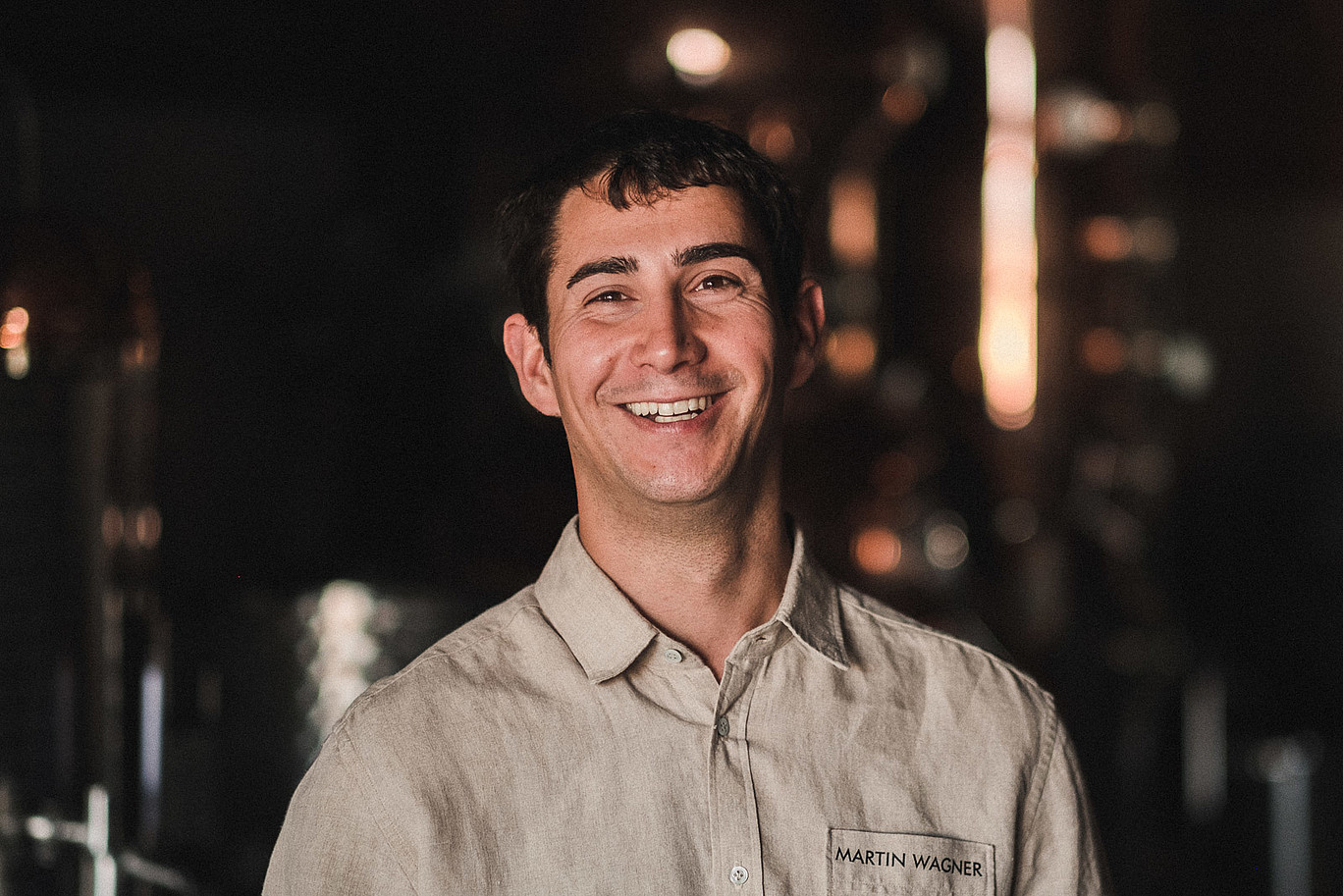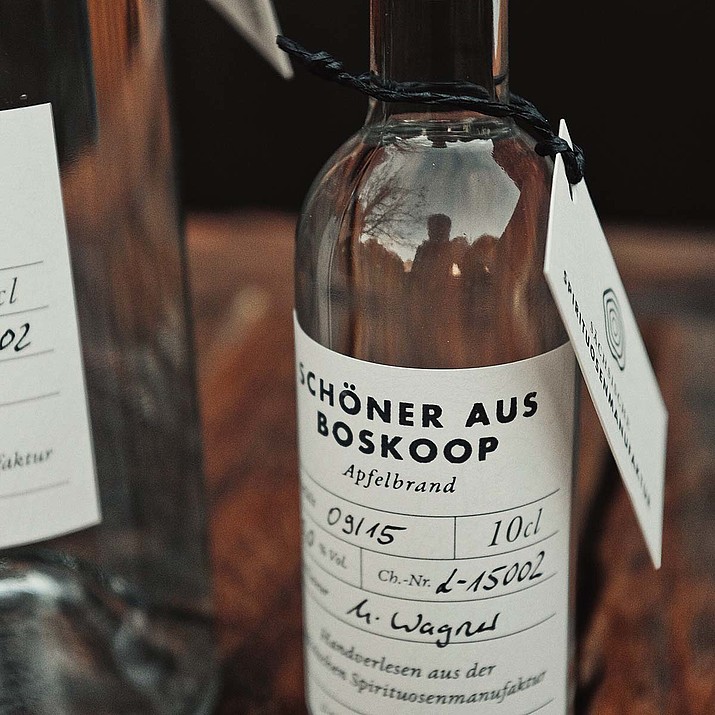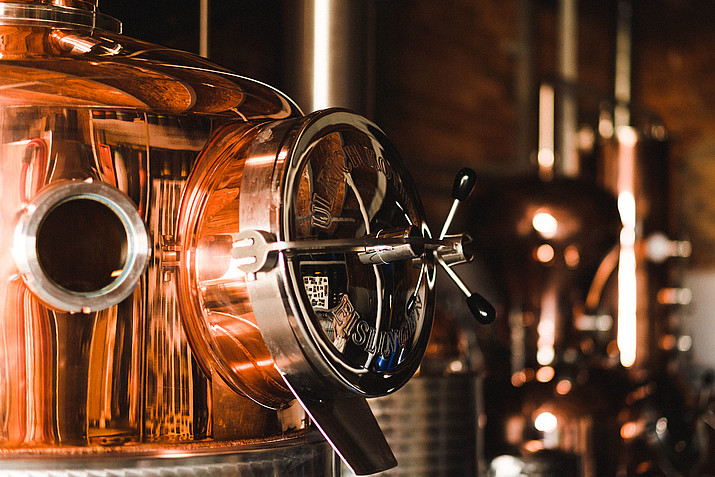As part of the start-up academy, Martin Wagner received start-up coaching from February to October 2015 to help him found Sächsische Spirituosenmanufaktur.
Sächsische Spirituosenmanufaktur produces high-quality fruit liqueurs, brandies and spirits from regional raw materials. The special creations are produced in Schirgiswalde-Kirschau with care and love in line with the motto "quality before quantity".
The website with information about the manufactory's products can be found at www.saechsische-spirituosenmanufaktur.de
We conducted the following interview with Martin Wagner in September 2021. In it, he gives a candid insight into his experiences as a founder.

My old job didn't fulfill me. I wanted to do things that I really enjoyed. To be independent. Not like in an employee relationship where you are told what you have to do. I wanted to put that into practice. I didn't want to wake up in my mid-50s and regret not having taken this step.
I imagined life would be easier as a self-employed person. I spend most of my working time dealing with bureaucracy and although there are many self-employed people in my family in the trades and I therefore knew better what to expect, I wouldn't have imagined it would be like this at the beginning.
In my opinion, many students still have an unrealistic idea of self-employment and setting up their own business - at some point they will be able to hand over everything and lead a relaxed life.
I can only speak from my experience in the manufacturing industry, but especially in the early days you don't have a 40-hour week, but rather work 60 to 70 hours a week. You shouldn't be under the illusion that you can earn a lot of money with little work.

Producing spirits corresponds to my previous professional background. Before studying, I trained as a brewer and maltster. I worked in alcohol production and held a management position in a spirits company.
It was clear to me from the start that I wouldn't be able to keep up with the industry. That's why I wanted to pursue a niche strategy and developed the idea of producing spirits with a regional and sustainable focus.

I gradually drew up a business plan. I was able to acquire the business knowledge during my studies, while I had the technical knowledge from my training and work experience.
During my studies, I tried to take in everything related to the topic of start-ups. Further training courses offered by the Start-up Academy, lectures, seminars at the TU Dresden start-up network. I wanted to get as much input as possible.
An important contact for me before and during the start-up was the employment agency. I received advice here, for example on the topics of start-up funding and health insurance subsidies - there are a lot of support options that you might not have on your radar and are particularly important at the beginning.
Then in general: company networks such as the Wirtschaftsjunioren, where I was able to exchange ideas with like-minded people and learn from the experiences of others.
And yes, of course, the start-up academy. Here you have the opportunity to take part in courses on the topic of start-ups free of charge, which you would otherwise have to pay for elsewhere after graduation. You definitely have to take it with you.

My domain is the manufacturing industry, which is initially very capital-intensive. As a production company, I first had to build up and own the so-called production factors. That takes a long time and costs a lot of money - but it also has the advantage later on that the company has a real and not a fictitious value.
This makes sense for later financing, as you will be valued differently by banks. In addition, you have created real value. You have produced a product that can be sold at a marketable price.
In my industry, I face the challenge of being dependent on nature. Not all raw materials are available every year. There are failures. Sometimes there is drought, sometimes frost. This results in very strong fluctuations in raw material prices.
What would I do differently?
I would probably take more risk at the beginning and make a big investment straight away, not do everything step by step. I wanted to achieve manageable, slow growth for the company and finance investments from my own liquidity. However, it turned out that this entails major tax disadvantages. You should consult a tax advisor beforehand - I thought it would be too easy beforehand.
I also learned from my mistakes when it came to employees and sales. I wouldn't do that again under any circumstances. But that's also where you develop.

You should think carefully beforehand about whether you want to become self-employed. I often doubted whether it was the right path. And there are always situations where I think I might give up again.
You should be aware in advance that you literally have to clench your jaws and keep going, especially in such situations. You shouldn't be the type to throw in the towel quickly.
As a founder or entrepreneur, you have to be a kind of jack-of-all-trades, especially at the beginning. This means: having an insight into many things, taking care of everything and ultimately being responsible for everything.
I also think it's important to ask the questions: what do you have to consider legally and fiscally, who comes to you and holds out their hand? Regardless of whether it's compulsory membership of the Chamber of Industry and Commerce or the Chamber of Crafts - where do fees apply, what has to be paid, what costs are incurred for notaries and drafting contracts? These are all things that are often not mentioned, but which you have to deal with in practice.
